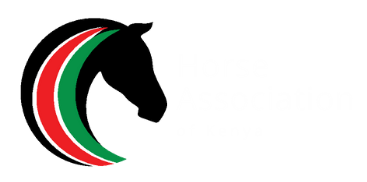
GENERAL CARE OF HORSES
INNOCULATIONS
Ask your Vet for advice on neccessary Innoculations. There are some essential vaccinations required in Kenya and these must be kept up to date.
Vets with the largest equine practices are:
Sercombe Veterinary Surgeons, Dr Vijay Varma, Dr Anita Mills Stanley, Dr Sonia Varma and Dr Daniel Mungai.
Horse Physiotherapy is done by: Téa Carr-Hartley, Anna Mason, OJ Muthama and Clare Hewitt-Stubbs.
African Horse Sickness: this is a problem in Kenya. Horses should be vaccinated yearly before the rainy seasons. AHS vaccination consists of a course of two injections given three weeks apart. Please ask your Vet for advice about exercising your horse after the injections as strenuous exercising within the first 2 weeks of the vaccination can influence the effectiveness of the vaccine. At the moment there is a shortage of South African Hose sickness Vaccine, please check with your vets.
Rabies: this is necessary as the disease is endemic and prevalent in most parts of Kenya. The HAK requires that, when you register your horse, you present an up-to-date Rabies vaccination certificate. This then needs to be updated yearly. This injection should be given by a Vet so that a certificate can be signed and stamped.
Tetanus: is recommended and can be given at the same time as the Rabies vaccine.
Equine Flu: the Jockey Club of Kenya stipulates that all horses entering the Racecourse grounds must be inoculated against equine flu as it is a devastating illness and is highly contagious. Contact your Vet or Dr Varma at the Jockey Club for further information. This is a requirement for all horses competing at the Jockey Club of Kenya grounds and must be done 6 monthly.
SHOEING
In Kenya, we mainly use cold shoeing and it is worth finding a farrier with good recommendations. Nails and shoes can be bought at Tack Rack, which is situated along Ngong Road at MacNaughton Centre. Leather or rubber pads, with or without Stockholm Tar and cotton wool, are sometimes put beneath the shoes to act as a shock absorber on hard ground.
WORMING/PARASITES
WORMING: Please consult your Vet about a worming regimen. Generally, horses are wormed every 3 months. There are a number of different preparations in paste, powder, liquid and injectable form available in Kenya. It is advisable to clear dung from your fields and rest your fields to break the cycle of worm and larvae. Best to burn dung after worming.
TICKS: here are many different routines to manage ticks and you can ask your vet for advice. Washing your horse regularly with a recommended tick shampoo helps, but be sensible in colder weather. Some horses have a reaction to small ticks and may come out in large, flat bumps where they have been bitten. Tick grease is available and can be smeared round the tops of the horse’s hooves to prevent ticks from climbing up the legs. It can also be smeared in the ears. Biliary Fever and other tick borne diseases are endemic. Please avoid using Triatix on horses, as it is very poisonous to them.
FEEDING
Probably best to ask the previous owner for a diet sheet and adjust that or speak to your vet. You will have to work out a regime of diet and exercise to suit your horse/pony. The foodstuffs are available from a variety of sources at a range of prices and it is worthwhile to shop around.
Vitamins and additives that are recommended include feed lime (calcium), horse lick/Maclick (about one tablespoon), Cosvita, Tonnimix, table salt or rock salt and Brewers Yeast (about one teaspoon). Most of these, together with other, specialized, supplements can be obtained from Tack Rack in the McNaughton Centre along the Ngong Road. In Kenya it is also recommended that a handful of Electrolytes is added to the water when the horse has been sweating after hard work, to replace lost salts.





